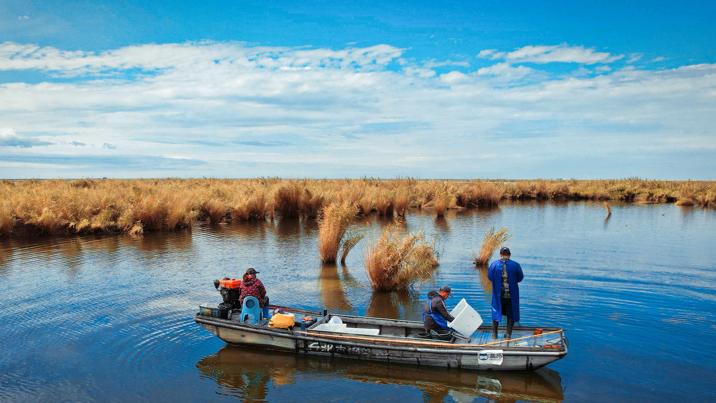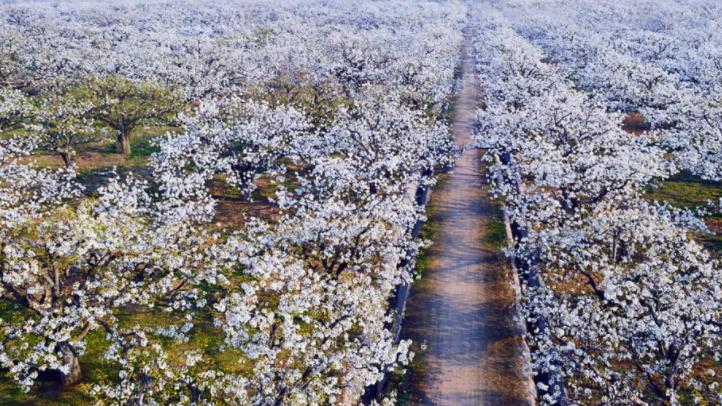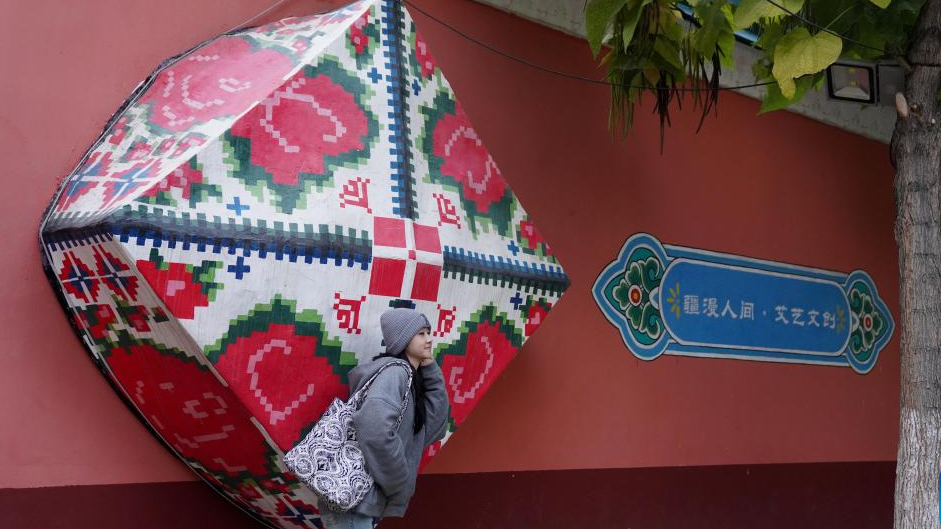Young Chinese inject fresh vitality into agriculture
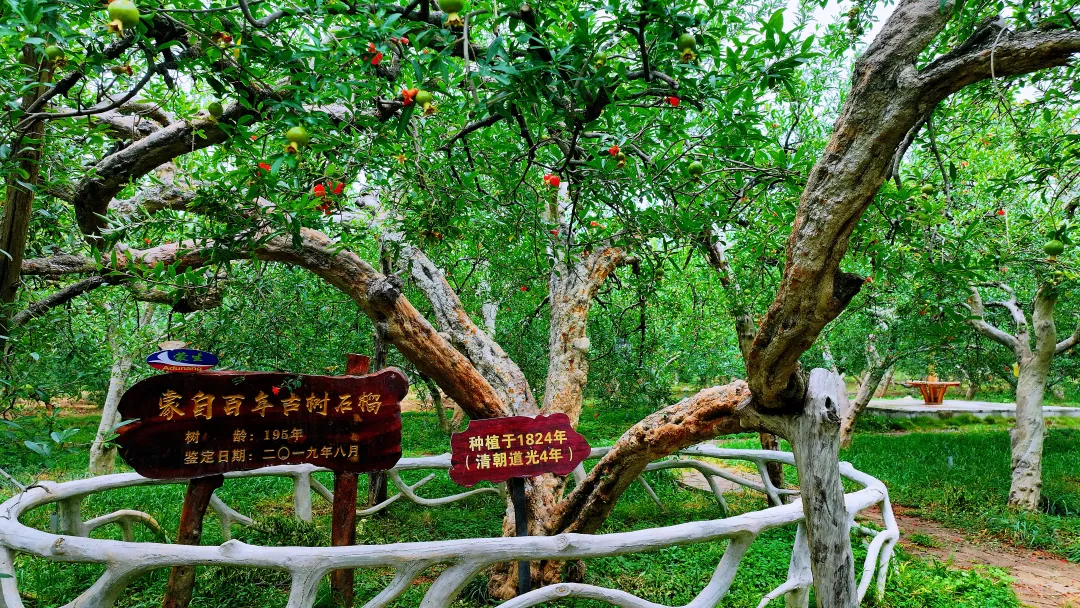
Photo shows a 200-year-old pomegranate tree at an orchard of ancient pomegranate trees in Mengzi city, southwest China's Yunnan Province. (Photo/He Xinwen)
Young people in China are showing a growing interest in agriculture, infusing new vitality and possibilities into agricultural development and rural areas.
In particular, college graduates with professional expertise in agricultural technologies are playing increasingly important roles in agricultural green transformation across the country.
"Organic pomegranate with abs"
Thanks to students and professors from China Agricultural University (CAU), Mengzi city in southwest China's Yunnan Province, which boasts a long history of pomegranate cultivation, has seen its old pomegranate trees thrive with new vitality and produce sweeter fruit.
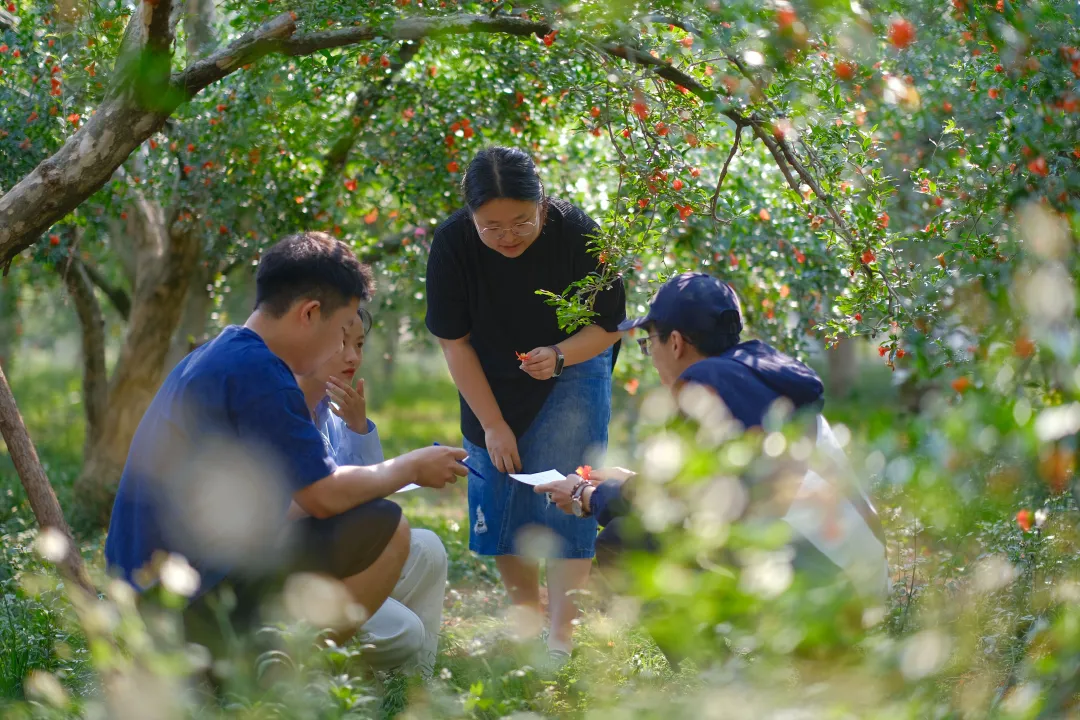
Members of a team taking part in an agricultural practice and assistance program named "science and technology backyard" carry out research at an orchard of ancient pomegranate trees in Mengzi city, southwest China's Yunnan Province. (Photo/Zhang Yu)
Despite their age, century-old pomegranate trees in Mengzi city are still exuberant and bear sweet fruit. Due to their abdominal muscle-like seeds arrangement, the pomegranates are affectionately called "pomegranate with abs" by students and teachers taking part in an agricultural practice and assistance program named "science and technology backyard" (STB).
The STB program allows college students, professors, and agro-technicians to give full play to their agricultural expertise in the front line of agricultural production, so as to facilitate the development of agriculture and rural areas, and increase the income of farmers.
Under the program, students and professors from CAU have devoted themselves to studying conservation techniques for pomegranate trees and launched China's first research project on organic pomegranate production.
The project has helped local pomegranate growers bid farewell to pesticides and chemically synthesized plant growth regulators, which not only rejuvenated century-old pomegranate trees, but also improved the taste of pomegranates produced by these trees.
The team has also independently developed a new high-efficiency attractant for Bactrocera dorsalis. The trapping efficiency is six to seven times higher than that of common attractants, significantly reducing the use of pesticides and promoting the green and sustainable development of the local agriculture industry.
Less fertilizer, greener and sweeter honey pomelos
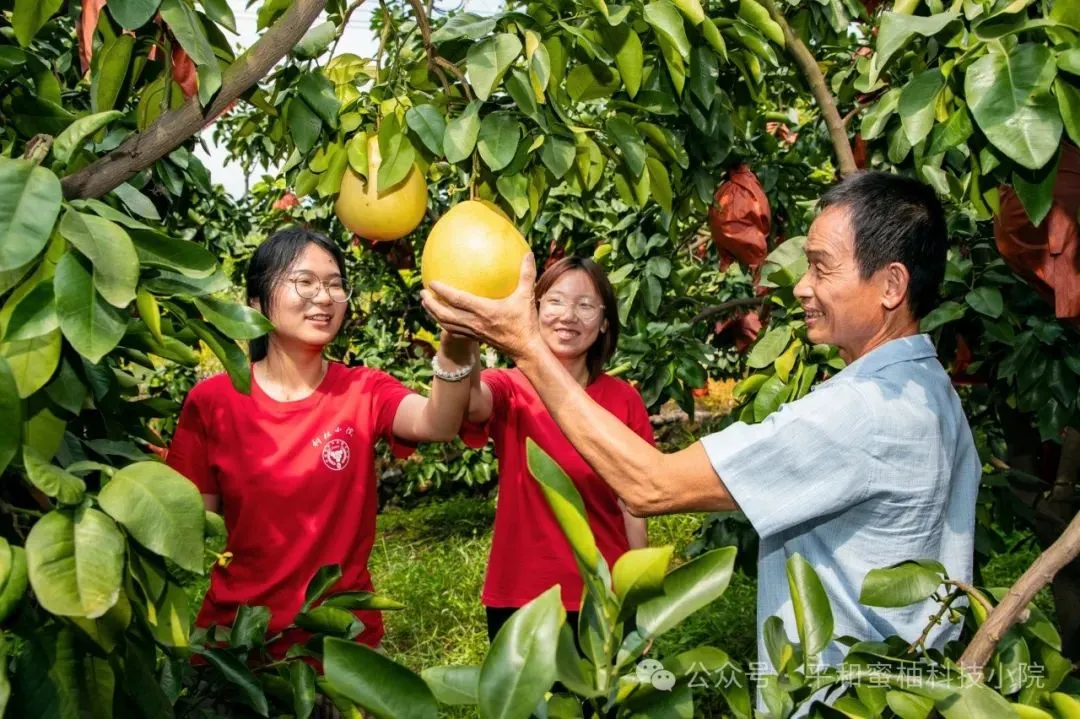
A honey pomelo farmer checks the growth of fruit at an orchard with students taking part in an agricultural practice and assistance program named "science and technology backyard", in Pinghe county, southeast China's Fujian Province. (Photo courtesy of the WeChat account of the science and technology backyard in Pinghe county)
Another team of the STB program, which consists of more than 30 students and teachers from Fujian Agriculture and Forestry University (FAFU) in southeast China's Fujian Province, has contributed greatly to the green development of the local honey pomelo industry in Pinghe county, Zhangzhou city, Fujian Province.
The team has innovated a set of technologies to address the problem of soil acidification and improve the imbalance of nutrient supply in local pomelo orchards.
The technologies have effectively cut fertilizer input for pomelo growers in Pinghe county by 60 percent, while increasing the yield of pomelo trees and making the pomelo more delicious and fragrant.
Post-00s man sets up "intelligence station" to manage 1,000 mu of farmlands
Wang Mingxin, a young man born after the year 2000 from central China's Henan Province, successfully manages 1,000 mu (about 66.67 hectares) of farmlands through an "intelligence station" empowered by modern technologies.
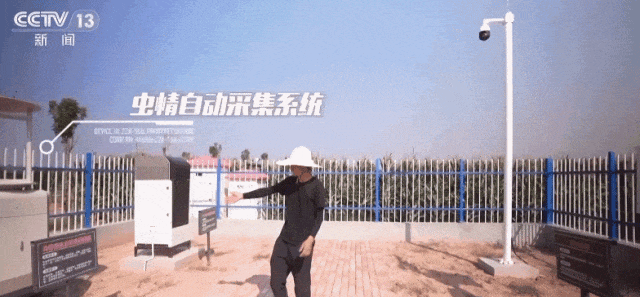
Wang Mingxin manages farmlands through an "intelligence station" empowered by modern technologies in central China's Henan Province. (Photo courtesy of CCTV News)
He established an automatic pest information acquisition system in the fields to learn how serious the situation of pests and diseases in the fields was through the number of pests killed every day.
Another part of his "intelligence station", the "soil moisture station", irrigates the land according to data collected by multiple sensors installed in the fields.
Wang also uses an aerial survey drone to generate prescription maps for farmlands. With areas of different colors representing different growth conditions, the maps help manage crops more accurately.
With the help of the intelligent agricultural system, every step of agricultural production, from plowing and sowing to management and harvest, is carefully orchestrated and efficiently handled by machinery, enabling Wang to complete such jobs as watering crops and killing pests through a simple click on his mobile phone.
"I am a farmer, but I no longer need to work hard in the fields with my 'face to the soil and back to the sky' like farmers used to do in the past. I am a commander of modern agriculture," Wang said.
"An extraordinary egg"
"Our eggs are not ordinary eggs," noted Xie Rupeng, a young entrepreneur who runs livestock farms in Bajia township, Yangjiang city, south China's Guangdong Province.
With a master's degree in nutrition and food hygiene from Nanchang University in Nanchang city, east China's Jiangxi Province, Xie has applied his expertise to the rural farming industry.
He found that by adding fermented fungi with broken cell walls to feed, hens could absorb beta carotene in the fungi and produce eggs with more nutrients and better taste than ordinary eggs.
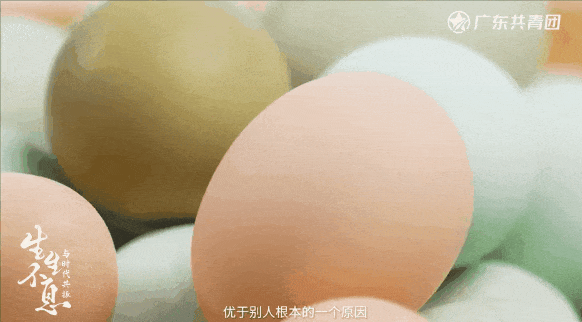
(Photo courtesy of the official WeChat account of the Communist Youth League of Guangdong)
After returning to his hometown to start his own business, Xie opened five farms in several villages of Bajia township within eight years, not only creating job opportunities for villagers to work near their homes, but also creating a local specialty worthy of pride.
He named the eggs Xiaosheng Huadan, which is derived from the two main roles of Peking Opera-Xiaosheng (young male role) and Huadan (young female role).
"I hope that the chickens raised by Chinese people in their own homes can be as representative as Peking Opera," Xie explained.
Photos
Related Stories
- Botswana to start commercial production trials of Chinese rice
- Town in China's Ningxia witnesses harvest season of specialty jujubes
- Young village worker helps villagers develop rice seed production industry in SW China
- Feature: Chinese scientist's life-long quest to revolutionize wheat breeding
- China to stabilize beef, milk production: ministry
Copyright © 2024 People's Daily Online. All Rights Reserved.







